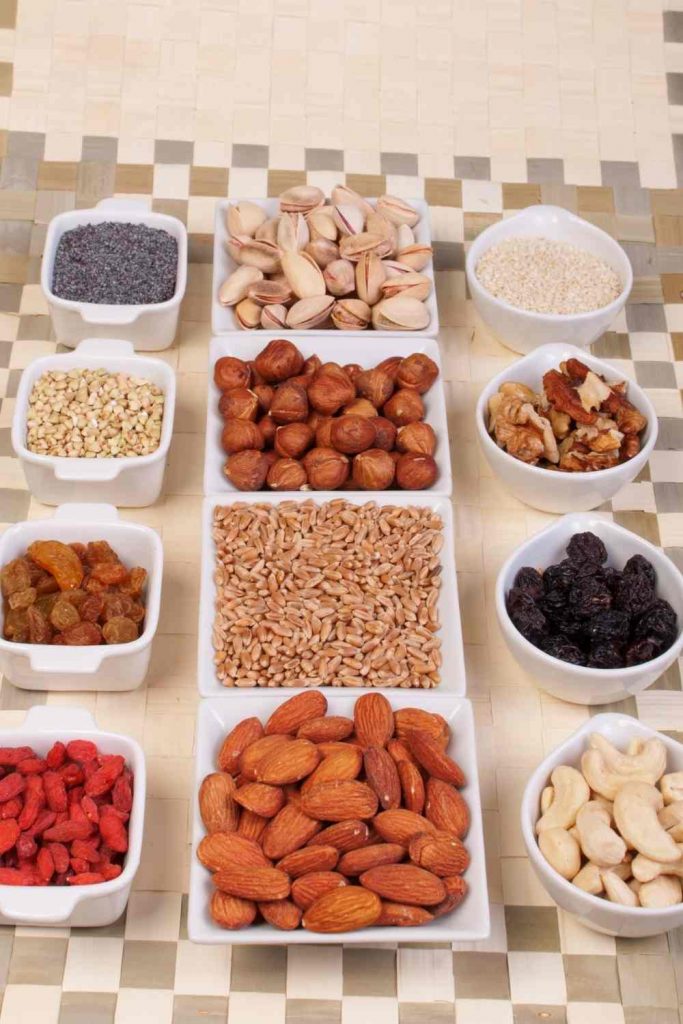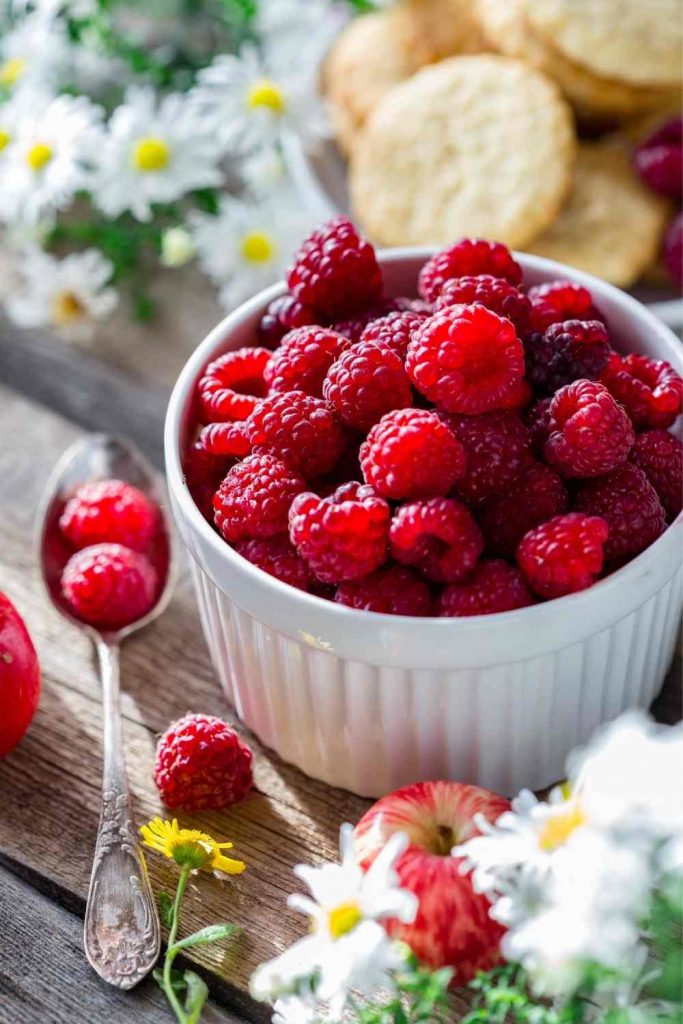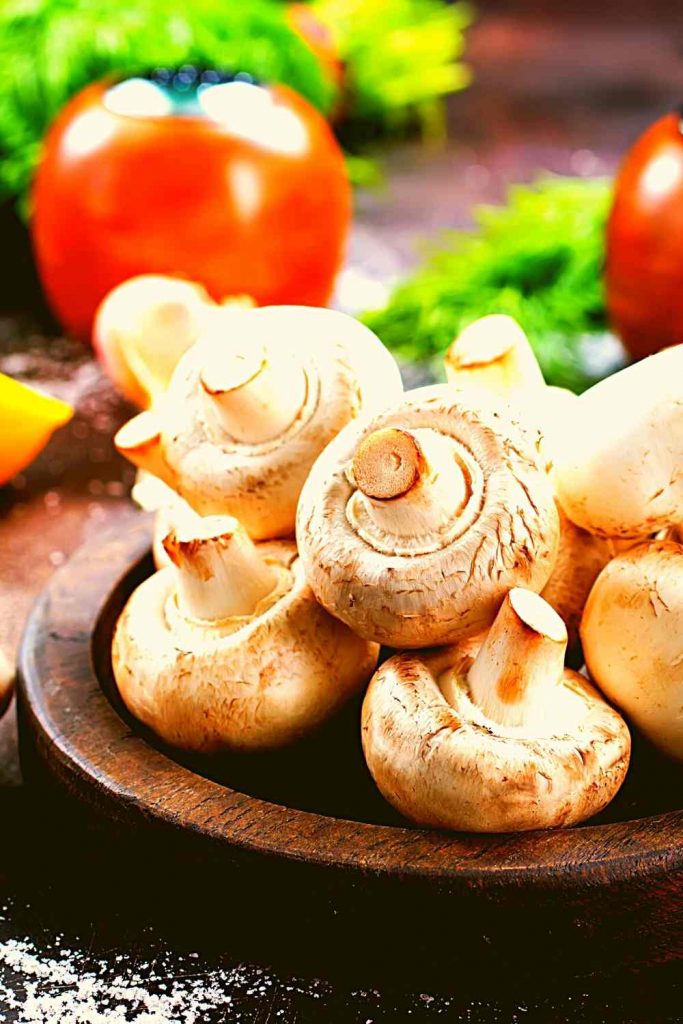What we consume has the ability to either assist or hurt us. Our addiction to processed foods deprives us of enough nutrition and contributes to diseases such as obesity, cardiovascular disease, and type 2 diabetes. It doesn't have to be this way; we should consume meals that invigorate us, lower our risk of sickness, and help us maintain a healthy weight. We must feed our bodies nutrient-dense meals in order to live longer and be healthy. Plant foods may help us regain our health and vigour.

Jump to:
1. Cruciferous Vegetables
These are superfoods that have the capacity to change human hormones, activate the body's natural detoxification mechanism, and stop cancer cells from growing. To unleash their powerful anti-cancer qualities, cruciferous vegetables should be chewed thoroughly or consumed shredded, diced, juiced, or mixed. Sulforaphane, a phytochemical present in cruciferous vegetables, has been shown to protect blood vessel walls against inflammatory signals, which may contribute to heart disease. Among all foods, cruciferous veggies are the most nutrient-dense. Consume a range of raw and cooked vegetables on a regular basis, such as broccoli, cauliflower, Brussels sprouts, kale, or cabbage.
2. Salad Greens
Raw, leafy green vegetables (some of which are cruciferous) have less than 100 calories per pound, making them an excellent weight-loss diet. Women who ate a big salad at the start of a meal ate less calories throughout the meal, according to scientific research, and larger salads lowered calories more than smaller salads. A higher diet of salads, leafy greens, or raw vegetables is linked to a lower risk of heart attack, stroke, diabetes, and numerous malignancies, in addition to weight loss. Leafy greens are also high in B-vitamin folate, as well as the carotenoids lutein and zeaxanthin, which protect the eyes from light damage. Kale, collard greens, mustard greens, spinach, and lettuce are all good options. To get the most out of leafy greens, you need to get the most out of their fat-soluble phytochemicals, especially carotenoids, which need lipids, which is why your salad (or dressing) should always include nuts and/or seeds.
3. Nuts
Nuts are a high-nutrient source of healthy fats, plant protein, fibre, antioxidants, phytosterols, and minerals, and they're also a low-glycemic item that helps lower the overall glycemic load of a meal, making them an essential part of an anti-diabetes diet. Despite their high-calorie density, nut intake is linked to lower body weight, maybe because heart-healthy components decrease hunger. Regularly eating nuts lowers cholesterol and has been related to a 35% decrease in the risk of heart disease. Chopped walnuts or sliced almonds may be added to your next salad, or raw cashews can be blended into a creamy salad dressing.

4. Seeds
Seeds have a comparable nutritional profile to nuts in terms of good fats, minerals, and antioxidants, but seeds contain higher protein and are high in trace elements. Omega-3 fats are abundant in flax, chia, and hemp seeds. Flax, chia, and sesame seeds are also high in lignans, which are phytoestrogens that combat breast cancer. Pumpkin seeds are particularly high in zinc, while sesame seeds are high in calcium and vitamin E. Nuts and seeds should be consumed raw or gently roasted for optimal nutritional advantages. Toss flax or chia seeds into your porridge or smoothie in the morning.
5. Berries
These heart-healthy fruits are high in antioxidants. Blood pressure, indications of oxidative stress, total and LDL cholesterol all improved in studies when subjects ate blueberries or strawberries every day for many weeks. Berries are also high in antioxidants and are a good source of nutrients for the brain. There is evidence that eating berries may help reduce cognitive deterioration as people age. Try something different like goji berries, or go with the tried and true strawberry or blueberry.

6. Pomegranate
Pomegranates are a one-of-a-kind fruit with small, crisp, juicy arils that have a delicious blend of sweet and sour tastes. Punicalagin, the pomegranate's hallmark phytochemical, is the most prevalent and accounts for more than half of the antioxidant activity of the juice. Phytochemicals in pomegranates contain anti-cancer, cardioprotective, and brain-healthy properties. Most notably, a study of individuals with severe carotid artery blockages who drank one ounce of pomegranate juice daily for a year revealed a 30% decrease in atherosclerotic plaque, whereas the control group had a 9% rise. Another research of older persons found that those who drank pomegranate juice daily for 28 days outperformed those who drank a placebo beverage on a memory challenge. To get the edible arils out of the fruit, score it roughly a half-inch deep on the circumference, twist to split it in half, then pound the back with the back of a big spoon.
7. Beans
Beans and other legumes assist to balance blood sugar, lower hunger, and protecting against colon cancer when consumed on a daily basis. Beans, the most nutrient-dense carbohydrate source, are an anti-diabetes and weight-loss food because they are slowly digested, which slows the increase in blood glucose after a meal and promotes satiety, which helps avoid food cravings. They also include a lot of soluble fibre, which may help decrease cholesterol, and resistant starch, which is turned into short-chain fatty acids by intestinal bacteria, which can help prevent colon cancer. Eating beans, peas, or lentils twice a week has been shown to reduce the incidence of colon cancer by 50%. Consumption of legumes also offers great protection against other malignancies. Red beans, black beans, chickpeas, lentils, and split peas are all delicious, so try them all and choose your favourites.
8. Mushrooms
Regularly eating mushrooms has been linked to a lower risk of breast cancer. White and portobello mushrooms are highly protective against breast cancer because they contain aromatase inhibitors, which prevent the synthesis of oestrogen. Mushrooms provide a wide range of health benefits. Anti-inflammatory benefits, improved immune cell activity, DNA damage prevention, slower cancer cell development, and angiogenesis suppression have all been discovered in studies on various species of mushrooms. Mushrooms should always be cooked because raw mushrooms contain agaritine, a potentially carcinogenic chemical that is greatly decreased by cooking. Include ordinary white mushrooms in your diet on a regular basis, and experiment with more exotic species such as shiitake, oyster, maitake, or reishi.

9. Onions and Garlic
Onions are part of the allium family of vegetables, which benefits the cardiovascular and immunological systems and has anti-diabetic and anti-cancer properties. Allium vegetable intake has been linked to a decreased incidence of stomach and prostate cancer. These vegetables are recognised for their organosulfur compounds, which detoxify carcinogens, stop cancer cell proliferation, and impede angiogenesis, all of which assist to prevent cancer. When you slice, crush, or chew anything, these substances are released. Onions also contain significant levels of health-promoting flavonoid antioxidants, which have anti-inflammatory properties and may help prevent cancer. Try leeks, chives, shallots, and scallions in addition to garlic and yellow onions.
10. Tomatoes
Tomatoes contain a variety of health-promoting nutrients, including lycopene, vitamins C and E, beta-carotene, and flavanol antioxidants, to name a few. Prostate cancer, UV skin damage, and cardiovascular disease are all protected by lycopene. Tomatoes provide around 85 percent of the lycopene in American diets. Cooked tomatoes absorb more lycopene; one cup of tomato sauce has 10 times the amount of lycopene as one cup of raw, chopped tomatoes. Remember that carotenoids, such as lycopene, are best absorbed when eaten with healthy fats, so toss your tomatoes in a salad with nuts or a nut-based dressing for added nutrients. To avoid the endocrine disruptor BPA found in can liners, purchase chopped and crushed tomatoes in glass jars rather than cans.




